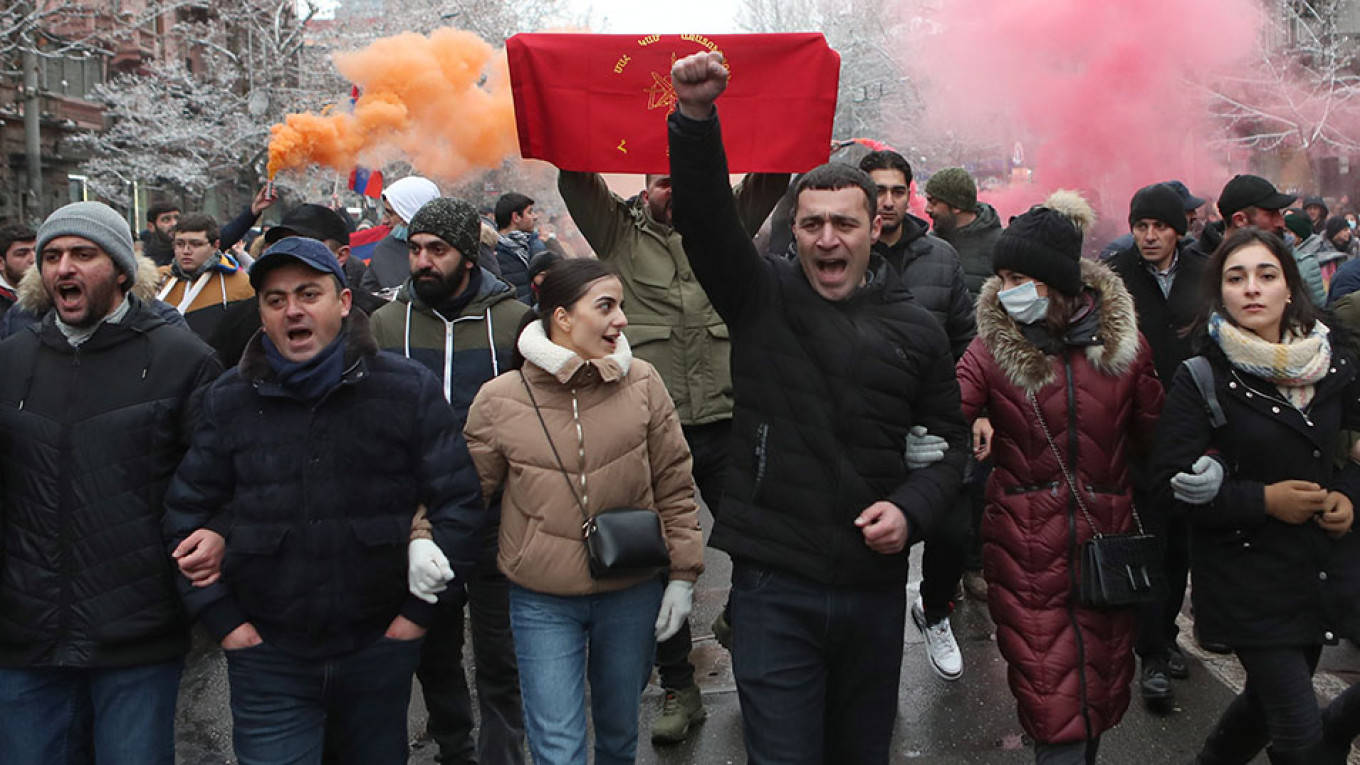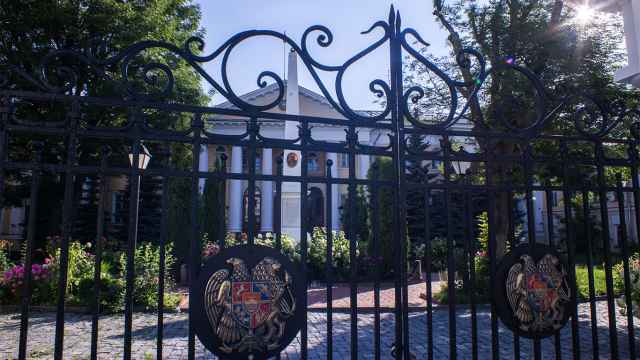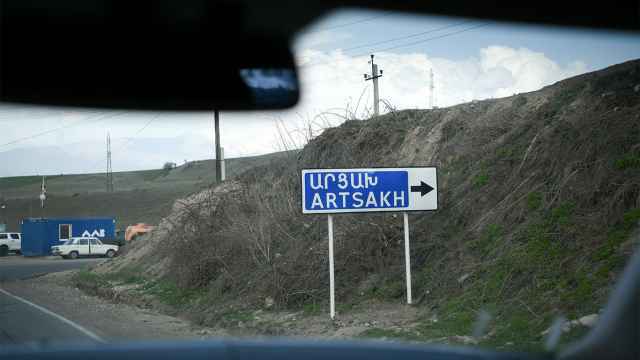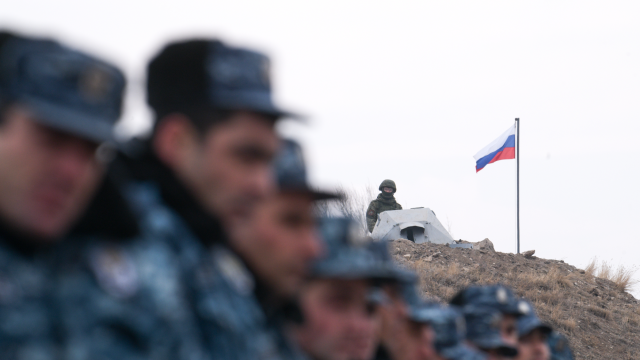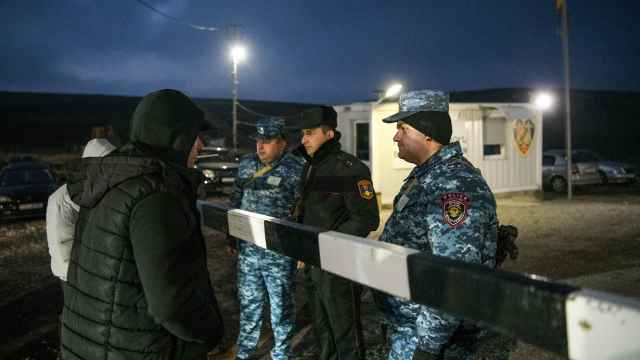In Nov. 2020, after Armenia’s devastating loss in the second Karabakh war, Armenian Prime Minister Nikol Pashinyan’s political future seemed to be over. How has he managed to stay in power, despite recent street protests and calls from the country’s generals for him to resign, and despite becoming known as the man who cost Armenia most of Karabakh and shattered the illusion of the country’s military might?
In early December 2020, the leaders of seventeen opposition parties successfully joined forces and elected a leader: Vazgen Manukyan, a veteran of the Karabakh movement who had served as minister of defense during the first, victorious Karabakh war of 1992–1994, when the territories now lost under Pashinyan’s command were captured. The united opposition issued an ultimatum demanding Pashinyan’s resignation. However, the prime minister simply ignored it with no consequences.
The opposition then spent a long time planning an ambitious protest for Feb. 20. Only between 13,000 and 20,000 people showed up, which was blamed on poor weather. Several small evening rallies followed. Then what seemed like a day of reckoning finally came on Feb. 25, when Armenian generals signed a collective letter calling for Pashinyan’s departure. Yet that had no effect either: even after that démarche, Pashinyan was able to bring supporters to the streets — at least as many supporters as the opposition.
The “attempted military coup,” as Pashinyan himself called it, was triggered by his own gaffe. The prime minister said in an interview that Russian Iskander missiles “either didn’t explode at all or only by 10 percent” during last year’s war with Azerbaijan. It was unclear whether Pashinyan meant that only one out of every ten missiles exploded, or that most elements of one missile failed to explode.
In all likelihood, neither was true. Azerbaijan made no mention of being attacked with Iskander missiles, although other missiles were discussed extensively. The Russian Defense Ministry’s response to Pashinyan’s claim was that no Iskander launches had been recorded, and that all missiles remained in Armenian arms depots.
A deputy chief of the Armenian general staff, asked by journalists to explain Pashinyan’s statement, laughed it off. Pashinyan dismissed him, prompting the “coup,” which ultimately boiled down to the collective letter. Pashinyan also tried to fire the chief of the general staff, but unsuccessfully: Armenian President Armen Sarkissian made use of his right not to sign off on the dismissal order for three days.
Neither side has been able to make further progress. The opposition called for an extraordinary session of parliament to lift martial law and dismiss Pashinyan, but failed: the prime minister’s supporters still make up a majority in parliament.
One popular theory in Armenia is that the generals spoke out against Pashinyan at the behest of Moscow, presumed to be incensed by the prime minister’s criticism of its weapons. However, if that were the case, the generals wouldn’t have stopped at a letter. Additionally, that same evening, Russian President Vladimir Putin spoke with Pashinyan and called for “maintaining peace and order” and “resolving the situation in a lawful manner.”
Moscow’s statements suggest that the Kremlin will stay out of the Armenian crisis provided that the November 9, 2020, ceasefire agreement remains in effect — and there are no reasons to doubt that it will. The Kremlin is coming to see Armenia the way it sees Kyrgyzstan and Abkhazia: the situation may be in flux, but there is no threat of politicians unacceptable to Moscow ascending to power. The Kremlin recognizes Pashinyan as the most popular politician in Armenia, and therefore wants to maintain the status quo.
Public opinion polls also show that Pashinyan retains support in Armenia: despite the tense atmosphere, Armenian society is not unified by hatred for the current regime. Rather, apathy reigns.
Even in November, when emotions from the defeat were at their peak, about 30 percent of the population supported Pashinyan. The results of a recent survey are even more interesting. Respondents were asked to rate politicians on a scale of 1 to 5: Pashinyan received a rating of 2.8 points — compared to 2.0 for former president Robert Kocharyan; 1.7 for another former president, Serzh Sargsyan (both former presidents had expressed support for the generals against Pashinyan); and 1.6 for the opposition leader Manukyan (who has teamed up with Kocharyan).
In other words, while Pashinyan might not be popular, his rivals are even less so. One of the main reasons for this is the opposition’s inability to offer a fundamentally different political course.
Even if the opposition succeeds in getting Pashinyan out of office, it won’t be able to change the results of the second Karabakh war — not only because of geopolitical circumstances but also because the Armenian people don’t want to be at war anymore.
Polls show that only 31 percent of Armenians favor trying to win back territories lost in the war. Twenty-eight percent are willing to accept “stabilization within the framework of existing borders,” and another 3 percent would be prepared to give up Stepanakert, capital of the self-proclaimed Nagorno-Karabakh republic controlled by Armenians, just to end the conflict.
This is why the opposition was unenthusiastic about the proposal to hold early elections, a prospect that immediately after the defeat seemed inevitable and logical. But the opposition understood that if the Kocharyan-Manukyan team took over, they would have to continue in Pashinyan’s stead. The tasks that lie ahead are no mean feat: demarcating a new border with Azerbaijan in villages that were 70 kilometers away from Azerbaijani positions just six months ago, coordinating transportation routes to the Azerbaijani exclave of Nakhchivan and to Turkey via Armenia, and finding compromises on remaining areas of Karabakh in order to keep some Armenian presence there.
At a time like this, it is better to remain in the opposition than to jeopardize one’s ratings in the halls of power. The opposition would prefer for Pashinyan to do the heavy lifting.
The Armenian people can likely sense this lack of real alternative, which is why the protests being touted as historic are not that well attended. What drives people into the streets is a vision of a bright future: a future where there is no corruption, the government listens to the people, and enemies are vanquished. Pashinyan had promised this “Armenia of the Future” in 2018. He has not lived up to expectations, but it’s hard to believe that those who came before him could build such an earthly paradise either.
This article was first published by the Carnegie Moscow Center.
A Message from The Moscow Times:
Dear readers,
We are facing unprecedented challenges. Russia's Prosecutor General's Office has designated The Moscow Times as an "undesirable" organization, criminalizing our work and putting our staff at risk of prosecution. This follows our earlier unjust labeling as a "foreign agent."
These actions are direct attempts to silence independent journalism in Russia. The authorities claim our work "discredits the decisions of the Russian leadership." We see things differently: we strive to provide accurate, unbiased reporting on Russia.
We, the journalists of The Moscow Times, refuse to be silenced. But to continue our work, we need your help.
Your support, no matter how small, makes a world of difference. If you can, please support us monthly starting from just $2. It's quick to set up, and every contribution makes a significant impact.
By supporting The Moscow Times, you're defending open, independent journalism in the face of repression. Thank you for standing with us.
Remind me later.



